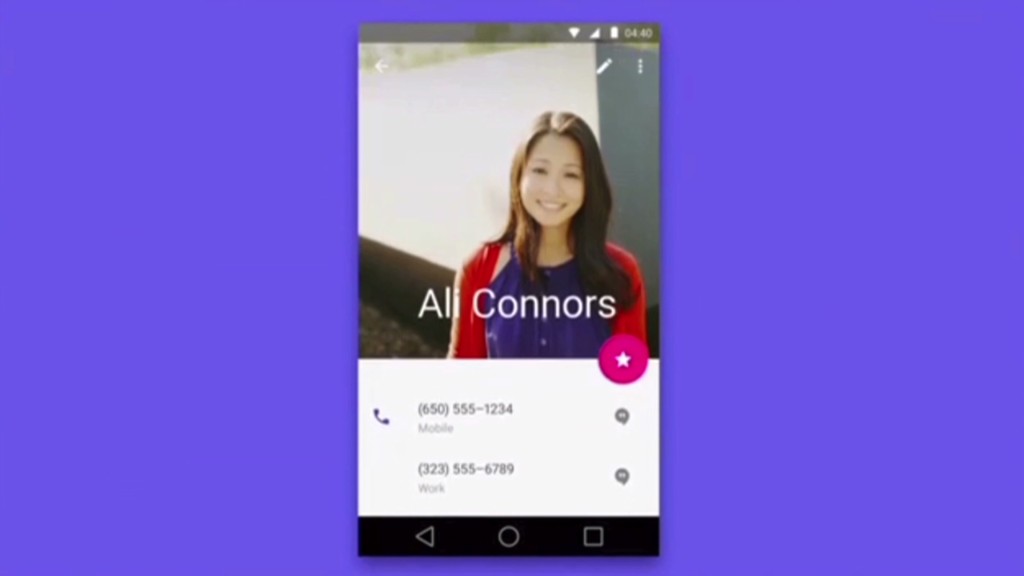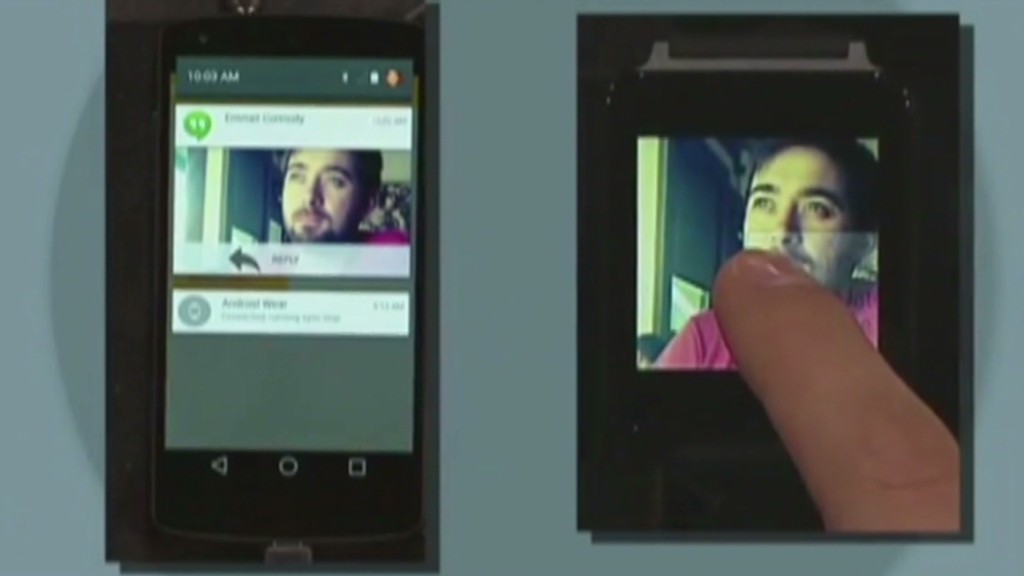
Ray Kurzweil has made a name for himself in the past few decades as an inventor, futurist and best-selling author. Now, he's heading Google's artificial intelligence efforts.
Kurzweil appeared before a standing-room only crowd at Google's annual software developer conference on Wednesday to discuss his work for the search giant.
He's currently leading a team that's trying to develop artificial intelligence by modeling the functioning of the human brain. The goal is to create software that can recognize language, communicate with users and understand books and documents.
Kurzweil ended up at Google in late 2012 after meeting with CEO Larry Page to give him an advance copy of his book, "How To Create A Mind." Kurzweil was looking for an investment in a company he was planning to launch that would focus on reverse-engineering the brain.
Related: Ray Kurzweil on the future of humanity
Page invited him to do it at Google (GOOGL) instead.
"It's been terrific," the 66-year old Kurzweil said of his time with Google. "It's really the only place I could do this project."

Kurzweil is known for provocative statements about how technology will shape our future, and critics have accused him of being long on hype and short on substance.
He didn't disappoint his fans (or critics) at Google I/O. He said Wednesday that we'll be 3D-printing our clothing by 2020, and he hopes to live long enough to achieve "functional immortality" by uploading his consciousness to a computer.
Kurzweil clearly has a tendency toward the grandiose, but there's no doubting his technical chops.
In addition to his best-selling books, he's developed pioneering technologies ranging from music synthesizers to a print-to-speech reading machine for the blind.
Kurzweil said Wednesday that supercomputers can already provide the processing power required to match the raw number of calculations the brain makes each second. The challenge his team is facing is figuring out how to model the development of hierarchical ideas that depend on one another.
Current search technology "is not fully modeling the ideas that you have when you write an article or a blog post," he said. "That's what we'd actually like to understand, and then you'd be able to dialogue with your search engine to give it complex tasks and interact with it the way you would with a human assistant."
Kurzweil said his current work at Google, while cutting edge, is just the latest development in a decades-long project.
"I've been thinking about thinking for 50 years," he said.

